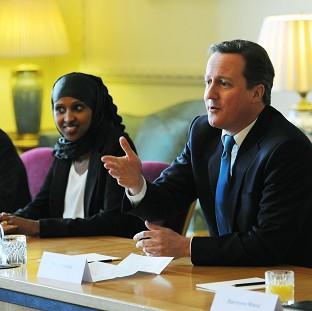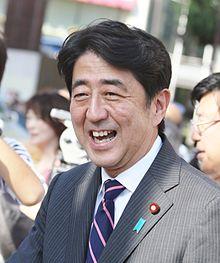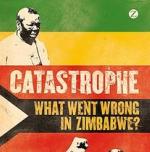Accounting for Haskanita
Two questions about the original posting about the attack on the AMIS base in Haskanita:
1. The attackers have been “clearly identified” as rebels. Clearly identified by whom? And what makes the identification “clear”? I very much doubt that AMIS personnel in Haskanita had much interaction with the mass of rebels in Haskanita, and the evidence I have seen suggests that no rebel leaders participated in the attack. As one investigator says, those who did were “some way down the food chain”.
The little I know, from afar, suggests that the identity of the individuals who attacked the base is still unclear, although the presumption that they were rebels is the most likely one. Khalil Ibrahim of JEM was, I think, the first to name names – to the BBC’s Arabic service – but Khalil has an axe to grind: SLA Unity had refused to work with him when the JEM leadership split, preferring cooperation with the rival faction led by Bahr Abu Garda and Abdalla Banda. To begin to understand what happened at Haskanita, and why, we need to know exactly who led/participated in this attack. The UN is investigating reports that government soldiers and Rizegiat militia were seen selling AMIS belongings in el Deain market over the weekend. There is much about what happened at Haskanita, and why, that is unclear.
2. The attack was “clearly planned and premeditated”. I think evidence is needed to support this statement. I personally do not have it. One of those inside the base during the attack has said that the men who attacked the base were “very drunk”. They “ransacked and looted EVERYTHING”¦ They took all the food, fuel, vehicles, ransacked the clinic.” This does not suggest a “clearly planned” attack. It suggests a drunken rampage.
On the morning of the attack on the base, Suleiman Jamous, recently released from detention in Kadugli and still in Chad, was informed that there was a rising tide of anger among rebels in Haskanita – especially within the rank and file. They were incensed that AMIS had not spoken out publicly about the aerial bombardment of the area over the past several weeks. Furthermore, they believed the AMIS base in Haskanita was being used as a “ground station” for directing aerial bombardment. They had intercepted, on FM radio, conversations between Antonovs and a man on the ground speaking Sudanese Arabic. (Anyone who doubts this is possible should revisit the Philip Cox’s 2004 film on Darfur, which has a recording of just such a conversation.) The speaker on the ground allegedly gave details of rebel positions and asked for aerial bombardment of one of them. Since Haskanita was under rebel control, the rebels’ presumption, according to this account, was that the man on the ground was inside the AMIS base – presumably the government representative in the base. (Abdel Aziz, the rebel representative, was expelled last year when the AU ejected all non-signatories. He tried to claim allegiance to Minawi’s signatory faction in order to maintain a rebel presence in the base, but was rumbled.) This anger suggests a possible motive, depending on who carried out the attack almost 12 hours later, but not necessarily planning. I am not sure how much “planning” an attack like this would require. I doubt that whoever attacked the base expected resistance (if they were sober enough even to contemplate it). In the event, with one or two notable exceptions, the Nigerians in the base put up no fight.
It goes without saying that nothing justifies the attack. But its context is not irrelevant.
One thing I agree with: “The AU and its role need to be assessed objectively.” If they are not, where AMIS has gone, UNAMID is doomed to follow. I believe the demonization of the AU, about which I agree with Alex, may have instilled a belief, in all parties, that AMIS was fair game. But there is much about AMIS’s relationship with the Sudan government that requires “objective” assessment. Who is going to do it?
A final question. Alex says several people have challenged him. Why are they not challenging in this public forum? Alex has made in public the case for the prosecution. Are others not willing to make their own case equally publicly?







No-one has researched Darfur’s war with greater rigor, diligence and impartiality than Julie Flint. I have complete confidence that she is ahead of everyone else, including the UN and AU’s investigation teams, in getting to the bottom of what happened in Haskanita on that tragic night.
I wrote that the attack was mounted by the rebels because that is what the AU reported, based on what its soldiers witnessed. I wrote that it was planned because any offensive military action requires planning, even of a rudimentary and last-minute kind. (I make no claim that it was long-planned or strategically calculated.) Furthermore, the efforts of at least one SLA leader to prevent the attack shows that at least some of the rebels had shown their intent in advance. How events subsequently unfolded was controlled by no-one and the looting that followed the second attack was, by most accounts, a free-for-all.
I wrote the posting in anger, at the double standards of the international community, including the AU’s own fatalism. The level of outrage was—to put it diplomatically—modest. The main point emphasized by both African and UN diplomats in the following days was that the AU remained committed to sustaining its presence in Darfur and its role in the peace talks. That was a fair point, as far as it went. But it is hard not to detect an impatience to put the Haskanita incident in the past, as a mere inconvenience, and get on with whatever plans had already been laid. Even the proposal of suspending the participation in peace talks of whoever was found to be the culprit was only pushed in a half-hearted manner. It is a response that leaves AMIS as vulnerable as ever. Is this all the value attached to the lives of African peacekeepers? Imagine the reaction if ten NATO troops (or, for that matter, European and American aid workers) had been murdered.
I was angry too because it seems that "we" (the international community) have come to require lower moral standards of liberation fighters and rebels than we do of governments, especially governments with a sorry record of human rights abuses. There is a long history of activists and journalists making excuses for the violations committed by freedom fighters, both during the struggle and when they are in government. This applies not just to Sudan but to many other countries such as Ethiopia, Rwanda and South Africa. The leaders of resistance wars become our friends and we stand in solidarity with their political causes. When they go astray our first instinct is to seek mitigating circumstances and to give the benefit of the doubt. I have been as guilty of this as anyone. But surely we should hold the leaders of liberation movements to HIGHER moral standards than the oppressive governments against which they fight. Explaining away their faults is, surely, a damaging condescension. Darfur’s armed movements have been indulged in this way—and not to their advantage. We would not give an iota of such indulgence to the Sudanese army or Janjawiid.
The UN-AU Haskanita investigation is due to report before the scheduled opening of the peace talks in Libya in two weeks’ time. Let us hope it identifies the culprits. Based on what is emerging, some criminalized junior elements of SLA and/or JEM were probably responsible, and more senior commanders will not be directly implicated. But the leaders of a liberation struggle also bear an irreducible responsibility to ensure that the troops that fight under their banner operate under strict discipline and moral code. Haskanita was a crime committed by a few, but the way in which a struggle under the slogans of liberation and justice is descending into banditry, at a significant margin, is a moral comedown for the entire leadership.
Julie has made greater effort to document the abuses of rebels, and to examine the sufferings of Darfur’s Arabs, than any other English language journalist. Her analysis of the local context of the attack, and especially the way in which AMIS has lost the respect of many Darfurians, is apposite. But there is another context that should be kept in focus: the value we place on the lives of African peacekeepers and the moral standards to which we hold liberation fighters.
Alex says "the UN-AU Haskanita investigation is due to report before the scheduled opening of the peace talks in Libya in two weeks’ time. Let us hope it identifies the culprits." It can, and must, identify the culprits. But it must do more: it must investigate the alleged use and abuse of the AMIS base by the Sudan government. To investigate the rebels without investigating their allegations would, without a shadow of doubt, make things worse – not better.
Alex also says the rebels have been indulged. Yes, and no. Since the DPA was signed in May last year, there has been a growing (and very belated) chorus of criticism of the rebels. Trouble, is, the lion’s share of the abuses for which the "rebels" have been blamed have not been committed by rebels – they have been committed by the former rebels of Minni Minawi, who now sits in government in Khartoum. These abuses range from torture and murder to rape and theft. In much of North Darfur, by contrast, the behaviour of the non-signatory rebels has been vastly improved since the signing of the DPA. This has not been commented on – far less rewarded, or epxloited – by those who have chosen to add rebel abuses to their public discourse, and who have often come dangerously close to equating rebel abuses with the government’s. This is abhorrent, even after Haskanita. The life of a Darfurian is no less valuable than the life of a peacekeeper, African or non-African, and the regime has killed ten thousand times ten Darfurians, and then some. Can anyone remember an instance when ten dead Darfurians have been newsworthy? – excluding, of course, the bloody wickedness in Greida, which was carried out by Minnists and blamed, most frequently, on "rebels"Â.
While the "rebels" have been blamed for ex-rebels’ abuses, Minawi and his men have continued to be the international community’s partner in peace. Minawi has met a stream of international dignitaries and worthies in his capacity as Senior Assistant to President Bashir, making pious pronouncements about the importance of implementing the DPA and punishing those responsible for Haskanita while his own men have been getting away with murder.
Not least among those who have indulged the rebels – past and present – is the African Union itself. Who killed the five Senegalese peacekeepers on April 1 this year? I understand that it was Minawi’s men under his longtime Chief of Staff, Juma Mohammed Hagar. Where is the investigation into this report? Who pulled the triggers? What was the degree of command and control? (More, I suspect, than in Haskanita.) How has the "faction" responsible been held to account? Or is there one standard for Minawi and another for non-signatories? The question is rhetorical. There is and this must end.
In August last year, two Rwandan peacekeepers were killed while escorting a fuel convoy. Who killed them? I have asked the African Union and others, repeatedly, and have not had a response. The Meidop commander Suleiman Marajan was initially blamed, at least in private communications. If it was not him, and I do not believe that it was, who was it? If it was him, why was he invited to Arusha recently? The AU said at the time that the leaders of the groups responsible for the "despicable" attack would be held personally accountable. If they have been, I have missed it. If they have not been, the AU itself has encouraged impunity. Which is it?
There was a crime. There are criminals. Identify them, because they can be identified. Hold them to account, publicly. Or expect more of the same.
Alex says we develop a cozy relationship with our "friends" in resistance wars. We do. I have a "friend" who is said to have been involved in the attack on Haskanita. I find it hard to believe he was, and I do not want to believe he was. He does not drink and in recent months has spent much of his time quietly putting our small fires that can easily develop into infernos – a stolen car here, a poke at a rival "faction" there. I doubt the international community knew his name until it cropped up in the context of Haskanita. If he is guilty of involvement in any way, by commission or omission, he must take what is coming to him. But so must those who killed the Senegalese and Rwandans.
The AU stepped up to the plate in Darfur when no-one else did. Its performance has been patchy and very often very imperfect. But the eagerness, almost the glee, with which it has been condemned – especially by those who would probably have difficulty finding Darfur on a map – has been disgraceful (to borrow an adjective often thrown at the AU itself). I very much fear that UNAMID will make things worse. The AU peacekeepers who have died in Darfur demand justice. So can the AU please tell me who murdered its Senegalese peacekeepers? And its Rwandans? What has become of the killers and, more importantly, their masters? Am I wrong in thinking that one has an office in the presidential palace in Khartoum and another will be invited to the Libyan talks? I think not.